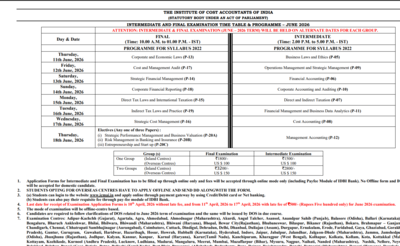Explained: Why the TN Private Universities Amendment Bill 2025 faced backlash

The Tamil Nadu Private Universities (Amendment) Bill 2025 has faced strong reactions from academic institutions, students, and stakeholders following its passage in the Tamil Nadu Legislative Assembly. The Education Minister has subsequently announced that the Bill will be reviewed, as reported by the Tamil Nadu Government, highlighting concerns raised by several private universities and educational bodies regarding governance, approvals, and compliance changes.The backlash centres on how the amendments alter the existing regulatory framework for private universities in the state. While the Bill seeks to standardise approval processes and ensure compliance with updated legal and regulatory standards, stakeholders have expressed apprehensions about the retroactive validation of notifications, NMC alignment, and stricter oversight by the government.Concerns over retroactive validation of notificationsOne key element of the amendment is the retroactive validation of prior notifications issued between January 2021 and March 2024. According to the Law Department of Tamil Nadu, all acts, proceedings, and decisions taken under these notifications are now deemed legally valid.Several universities argued that this retroactive validation may create confusion over previously unapproved courses or programmes, particularly where the earlier approvals were incomplete or under scrutiny. The concern is that this could inadvertently legitimise administrative irregularities that were previously being questioned.Changes in governance and approvalsThe amendment introduces a standardised framework for establishing private universities. Applications must now meet criteria outlined in the Letter of Intent issued by the State Government, and inclusion in the official Schedule of private universities is permitted only after fulfilling all prescribed conditions.While the government cited transparency and accountability as objectives, some university sponsors raised concerns that these changes could lead to stricter oversight and reduced autonomy in managing administrative and academic affairs. This is particularly sensitive for institutions operating across multiple campuses or offering diverse courses, as they may now face increased scrutiny at each stage of approvals.Read Also: TN Private University Amendment Bill 2025 to be reviewed after AUT, DMK, AIADMK backlash, says education ministerNMC alignment and medical course regulationsMedical courses in private universities have been brought under the purview of the National Medical Commission (NMC), replacing the previous reference to the Medical Council of India (MCI). According to the amendment, universities offering medical programmes must comply with NMC regulations covering faculty standards, infrastructure requirements, and curriculum specifications.Some institutions reportedly felt that aligning existing programmes with NMC rules could impose additional administrative and financial burdens. Universities that had planned or expanded courses based on prior MCI frameworks now need to ensure full compliance with NMC guidelines, potentially delaying admissions and course approvals.Impact on sponsoring bodies and registrationsThe Bill specifies that all private universities must have registered sponsoring bodies, either as trusts or companies under the Companies Act, 2013, with complete registration numbers and addresses included in the official Gazette.While this measure strengthens legal clarity, several educational trusts and companies argued that the requirements are too rigid. Concerns were raised about the administrative effort required to meet these standards, particularly for older institutions with historical registrations or complex ownership structures.Review by the Education MinisterFollowing the backlash, the Education Minister confirmed that the government will review the Bill to address stakeholder concerns, as reported by PTI and TNN. This indicates an intention to balance regulatory oversight with operational flexibility for private universities while ensuring compliance with legal and national standards.Significance of the responseThe reaction to the Tamil Nadu Private Universities (Amendment) Bill 2025 highlights the tension between regulatory reform and institutional autonomy. While the Bill aims to streamline approvals, ensure compliance with NMC, and validate prior government actions, private universities emphasise the need for clarity, administrative feasibility, and phased implementation.The government review process may result in clarifications or modifications, ensuring that private universities can continue operating effectively while adhering to updated legal and regulatory norms.






